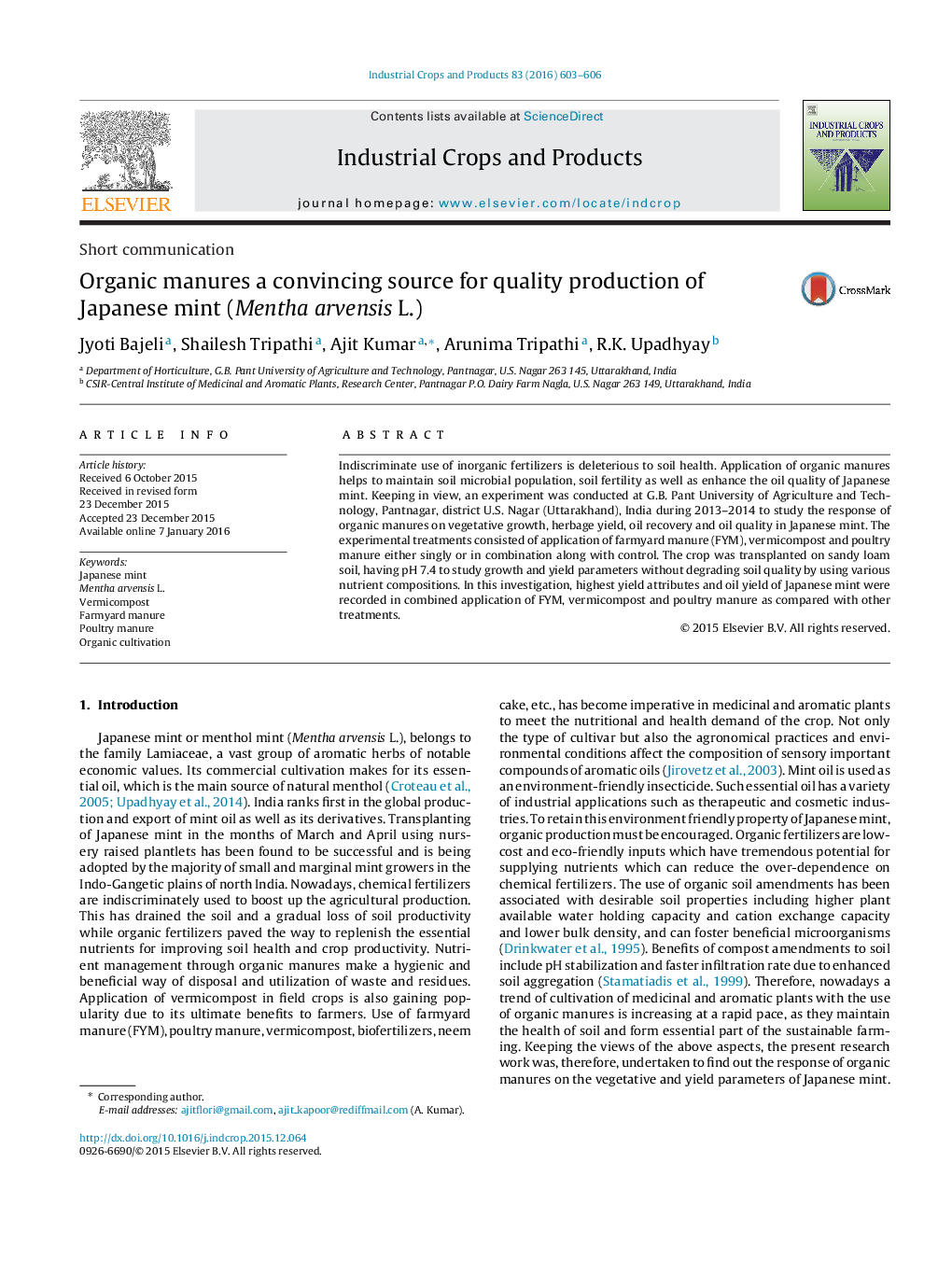| Article ID | Journal | Published Year | Pages | File Type |
|---|---|---|---|---|
| 4512285 | Industrial Crops and Products | 2016 | 4 Pages |
•Japanese mint or menthol mint (Mentha arvensis L.), have notable economic values.•Nutrient management through organic manures may be sustainable.•Organic cultivation of Japanese mint poses potent potential for quality cultivation.
Indiscriminate use of inorganic fertilizers is deleterious to soil health. Application of organic manures helps to maintain soil microbial population, soil fertility as well as enhance the oil quality of Japanese mint. Keeping in view, an experiment was conducted at G.B. Pant University of Agriculture and Technology, Pantnagar, district U.S. Nagar (Uttarakhand), India during 2013–2014 to study the response of organic manures on vegetative growth, herbage yield, oil recovery and oil quality in Japanese mint. The experimental treatments consisted of application of farmyard manure (FYM), vermicompost and poultry manure either singly or in combination along with control. The crop was transplanted on sandy loam soil, having pH 7.4 to study growth and yield parameters without degrading soil quality by using various nutrient compositions. In this investigation, highest yield attributes and oil yield of Japanese mint were recorded in combined application of FYM, vermicompost and poultry manure as compared with other treatments.
